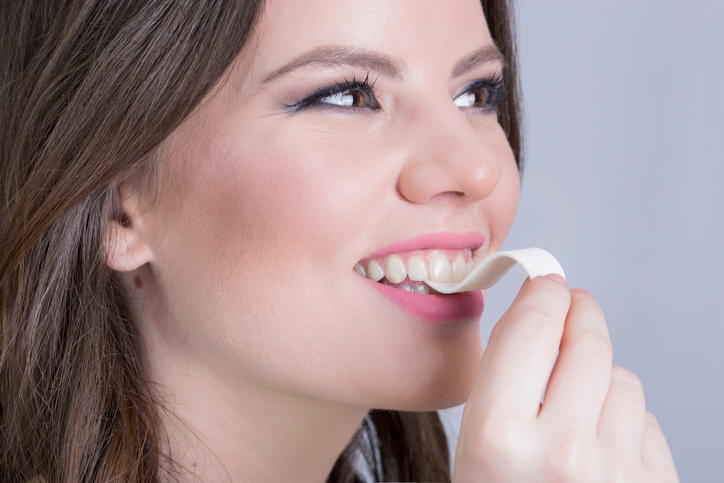How many times a day do you have a snack? Americans are snacking more frequently and drinking more sugary drinks throughout the day than ever and this is affecting your dental health. The leftover food that sits on your teeth is impacting plaque pH levels and can lead to a higher risk of developing cavities, which is why dental health experts recommend that you chew sugar-free gum which can help prevent tooth decay.
“Brushing might not always be an option after every meal, so chewing sugar-free gum serves as another positive way to increase the production of saliva flow, which can help flush out food debris after each meal, prevent tooth decay, and remineralize damaged enamel,” explains Dentist Sheri Doniger. There is a wide range of foods and drinks that are high in acid that should be consumed in moderation, foods like citric fruits and juices, dried fruits, sticky foods and candy, caffeinated and sugary beverages, and in general anything with tons of sugar is not good for your teeth.
Wrigley Oral Healthcare Program GIFs from Wrigley Oral Healthcare Program on Vimeo.
Benefits of chewing Sugar-free gum
Reduces the quantity and development of plaque
Relieves the symptoms of dry mouth
Neutralizes Plaque Acids
Remineralizes Tooth Enamel
May help reduce the incidence of caries
Dr. Doniger explains that there are four steps to follow for good oral health hygiene:
- Brush: Brushing is essential for cleaning your teeth and gums effectively. Make sure your toothbrush is at a 45-degree angle to the gum where bacteria and food debris live, moving the brush in short strokes so as not to scrub off the enamel or gums. Toothbrushes with soft, nylon, round-ended bristles are recommended and should be replaced every 3 to 4 months.
- Floss: This is one of those things that we often forget to do, but flossing serves as an essential factor in removing bacterial plaque between teeth and the gum line.
- Rinse: Rinsing properly with water or mouthwash helps maintain good oral health as it reduces bacteria in the rest of the mouth.
- Chew Sugar-free gum: Helps increase the production of saliva flow, which helps flush out food debris after each meal. It’s also a good idea to rinse after chewing gum that way you flush out anything the gum didn’t catch.
It’s very important to visit your dentist at least once a year or more, depending on what your dentist recommends. “Trends show that there is a generational gap when it comes to routine dentist visits,” explains Dr. Doniger. Baby Boomers are more likely to visit the dentist than GenXers and Millennials, and research shows that it’s not a priority for younger generations, since adults ages 20-34 are more likely to avoid the dentist for 2 to 3 years. “General visits should be a priority, since many diseases, such as diabetes and oral cancer may be seen in the mouth first,” she says.
